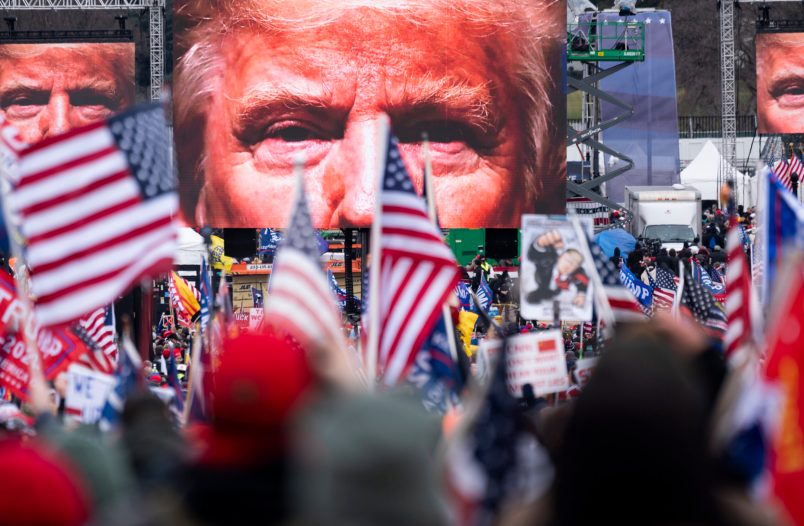The Supreme Court refused a request on Wednesday from former President Trump to block a Jan. 6 Committee subpoena for records about the Capitol insurrection.
It was a 8 – 1 ruling, with Justice Clarence Thomas the only dissenter.
The ruling allows the panel to receive records it requested in October from the National Archives. The records stretch hundreds of pages, and include notes taken by White House staff during the Jan. 6 attack.
“Because the Court of Appeals concluded that President Trump’s claims would have failed even if he were the incumbent, his status as a former President necessarily made no difference to the court’s decision,” the brief opinion reads.
Trump had argued that, as a former President, he could assert executive privilege over records created during his time in office. President Biden had already decided not to exercise privilege over the records the committee requested.
The court went out of its way to avoid addressing that issue, which raised a morass of questions that drove at the heart of accountability for former presidents. The court found that, because the appellate judges ruled on the case without addressing the issue of Trump’s status as a former president, it did not have to get into the question either.
“Because the Court of Appeals concluded that President Trump’s claims would have failed even if he were the incumbent, his status as a former President necessarily made no difference to the court’s decision,” the ruling reads.
In a statement, Justice Kavanaugh said that had the court faced Trump’s executive privilege issue, he would have voted to extend that authority to Trump. Justice Thomas did not explain his dissent.
Kavanaugh’s view, if put into practice, would go a long way towards ending accountability for former presidents, effectively allowing them to shield records from investigations examining alleged wrongdoing during their time in office.
The records that will now be available to the panel include White House call logs from Jan. 6 and drafts of speeches that Trump was scheduled to give that day, as well as, the DOJ said in a filing in the case, “a handwritten list of potential or scheduled briefings and telephone calls concerning election issues,” “a draft Executive Order concerning election integrity” and “a draft proclamation honoring deceased Capitol Police officers Brian Sicknick and Howard Liebengood.”
The records purportedly come from Trump administration officials that include Chief of Staff Mark Meadows, deputy White House counsel Patrick Philbin, and adviser Stephen Miller.
Read the ruling here:







They accepted it.
They ruled.
8-1.
Does this set precedence for the DOJ to obtain the same records? I assume it does.
Kavanaugh wrote the opinion, too.
Congress can give them to the DOJ if they feel like it. >.>
Hell, Congress could technically read them all out loud into the public record in the process of drafting legislation. Can’t be charged for it, no matter what.
It’s a good day.
Cue the temper tantrum about the worthlessness of “my judges” from you know who…